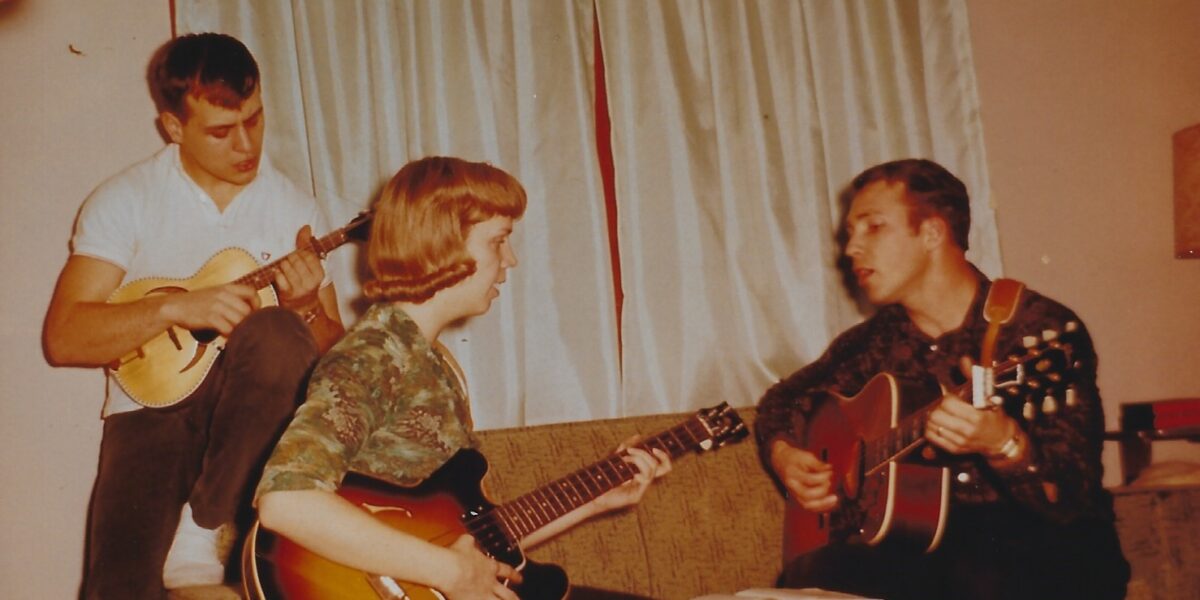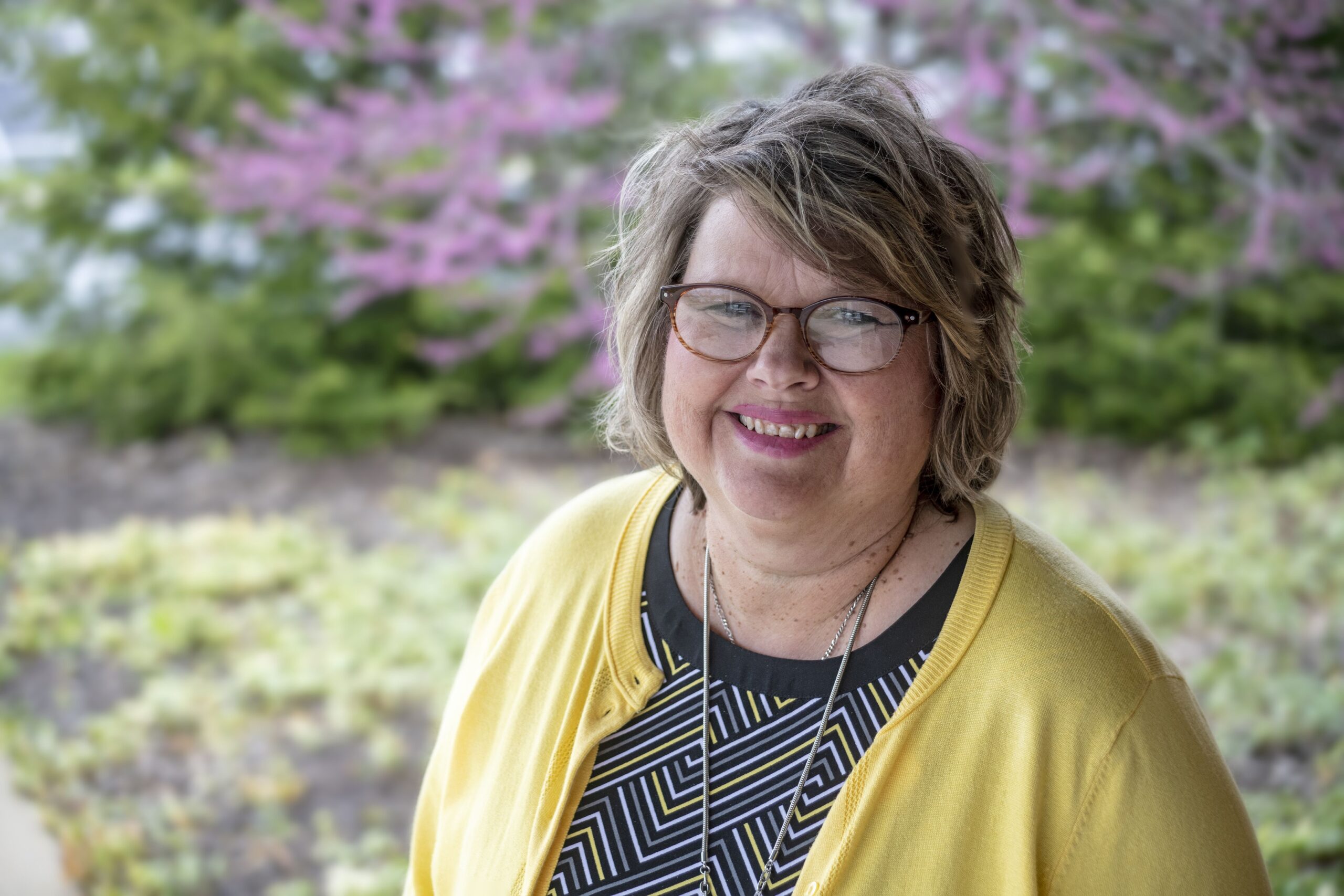NEWTON, Kansas (Mennonite Mission Network) — In the late 1960s, when Dick Lengacher served in Mennonite Voluntary Service (MVS) as a conscientious objector in Pueblo, Colorado, he discovered pacifism was not always popular beyond his Mennonite circle.
For example, while serving on the geriatric floor of Parkview Hospital as his alternative to serving in Vietnam, he upset a retired Naval officer who was a heart patient.
"As soon as he learned I was not in the military because of my being a pacifist, he went into a rage," Lengacher said from his home in Huntsburg, Ohio, during a recent Zoom interview. "Because of the upset, the nurse assigned me to another patient, and I left his room. But when I came back the next day and found an empty bed, I asked the nurse where he had gone. She told me that he had died of a heart attack."
"That was one of the most intense memories I have of not being received well because of my convictions. It was a major life lesson that I never forgot."
Lengacher shared this memory during the call with seven other MVSers who lived in the Pueblo unit house sponsored by Mennonite Board of Missions, a predecessor agency to Mennonite Mission Network. The MVS continues to function as a one to two-year program for people 20 years old and older.
During the hourlong call, the group shared how they forged lifetime bonds with fellow MVSers in the mid-1960s through mid-1970s. They bonded over shared service assignments, attendance at Pueblo Mennonite Church,and living together in a two-story, brick duplex at 2229 Grand Avenue. At the height of the program’s popularity, more than a dozen MVSers lived in the unit at a time.
On the call, interviewees said they bonded so deeply in Pueblo that, for the past 50 years, they have continued hosting reunions every two years or so throughout the U.S. . In the first reunions, young parents changed diapers and chased toddlers. These children became like cousins, developed their own friendships and attended the same Mennonite colleges.
Later, reunions grew quieter and more serene, as the implications of the spiritual and emotional growth gained in Pueblo grew more profound. The Zoom call alumni shared some of these serious thoughts, along with whimsy.
The sharing seemed to transport them back to their early adult years, when many of them lived away from their childhood homes for the first time.
"I came from a loving, conservative family in Milford, Nebraska, but MVS brought me into a whole different family that also cared for and loved each other," said Glenda Maury, who served as a nurse aid and who met her husband, Bob Maury, in the program. "The only difference between these two families was that in Pueblo, I experienced peace marches and community protests — things that never happened in Milford."
Maury, of Hutchinson, Kansas, noted that even though Pueblo and Milford were two very different communities, God’s love was still the same. "I discovered that hospital work was a good way to be a witness for Christ. My empathy for people grew, as I walked alongside patients who were weak and struggling," she said. "It was all a wonderful experience."
MVS also expanded Larry Hochstettler’s world. He now lives in Springfield, Illinois. "One of my jobs was to interact with patient families who did not have insurance and couldn’t pay their hospital bills," he said. "I had come from a small, northern Indiana community, and my eyes were opened really quickly to the realities in other kind of environments."
MVS also brought spiritual growth, said Nina Troyer, of Chesapeake, Virginia, who served as a ward clerk at the hospital. "I learned that faith had to come from within," Troyer said. "I went into MVS to become a better Christian, but it didn’t take long to realize I had taken myself along, and external circumstance are not what makes one into a great Christian."
Ministries beyond their service assignments and unit life also deepened discipleship, Lengacher said. "We had a structured devotional life and prayer time at the unit," he said. "And in the evenings, we went to nursing homes, and we took part in other ministries at the jail and a Boys and Girls Club."
He reminisced about how they all gathered around to watch Billy Graham on a black and white television.
That practice was part of the deepening of Lengacher’s spiritual life in MVS, he said.
"I had accepted Christ in my life when I was 13, because that was what my older brother did, and I followed him," he said. "MVS really helped me own the Christian life for myself."
Not everything was so serious, Hochstettler added. "You had to learn to roll with the punches at the unit house, because gags were going on all the time."
For example, Troyer said that she and some of the other gals put thumb tacks on all the piano keys one of the Saturdays when they cleaned the church.
In those days, in Pueblo, they could sell a pint of their blood for 10 dollars, which helped them to buy extra toiletries and go out to eat. One of their favorite places was Shakey’s Pizza Parlor, where they played folk songs and rock-and-roll on the jukebox.
"We used to dance all around the building," said Lewis Driver, of Harrisonburg, Virginia, who served as an x-ray orderly.
Hochstettler remembers the dorm rooms — one for the guys, and one for the gals. "We bonded over guy things — sports, cars, girls," he said. "But we also had some pretty serious talks, too."
Maury remembers the gals talked about hair, clothes and boys, one of which was Bob Maury, who became her husband. "If I had not gone into MVS, I would not have met Bob," she said. "We’ve spent 50 good years together. Quite a few marriages came out of that unit."
What also came out of that unit was the deep belief, on the part of dozens of MVS participants, that the wider church benefits from service programs sponsored by Mission Network; such as MVS, Service Adventure, Youth Venture and SOOP (Service Opportunities with Our Partners).
"When it comes to service, I say to others, ‘just do it,’ because it brings a sense of joy and happiness to others," Troyer said. "Getting a stipend of $15 a month taught me that life is more than making money and getting ahead. God calls us to give of our time and talent, too."
Judging from the longtime friendships that were forged in Pueblo: In giving, one may also receive the riches of relationships that last a lifetime.








